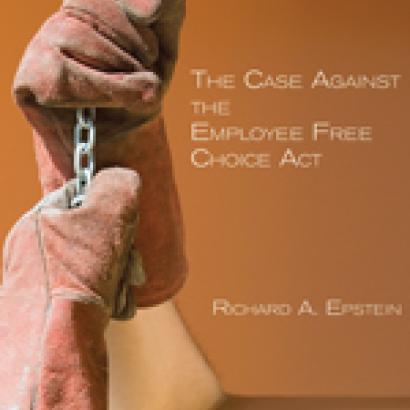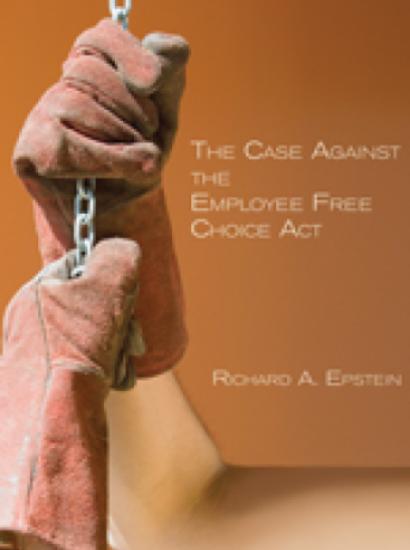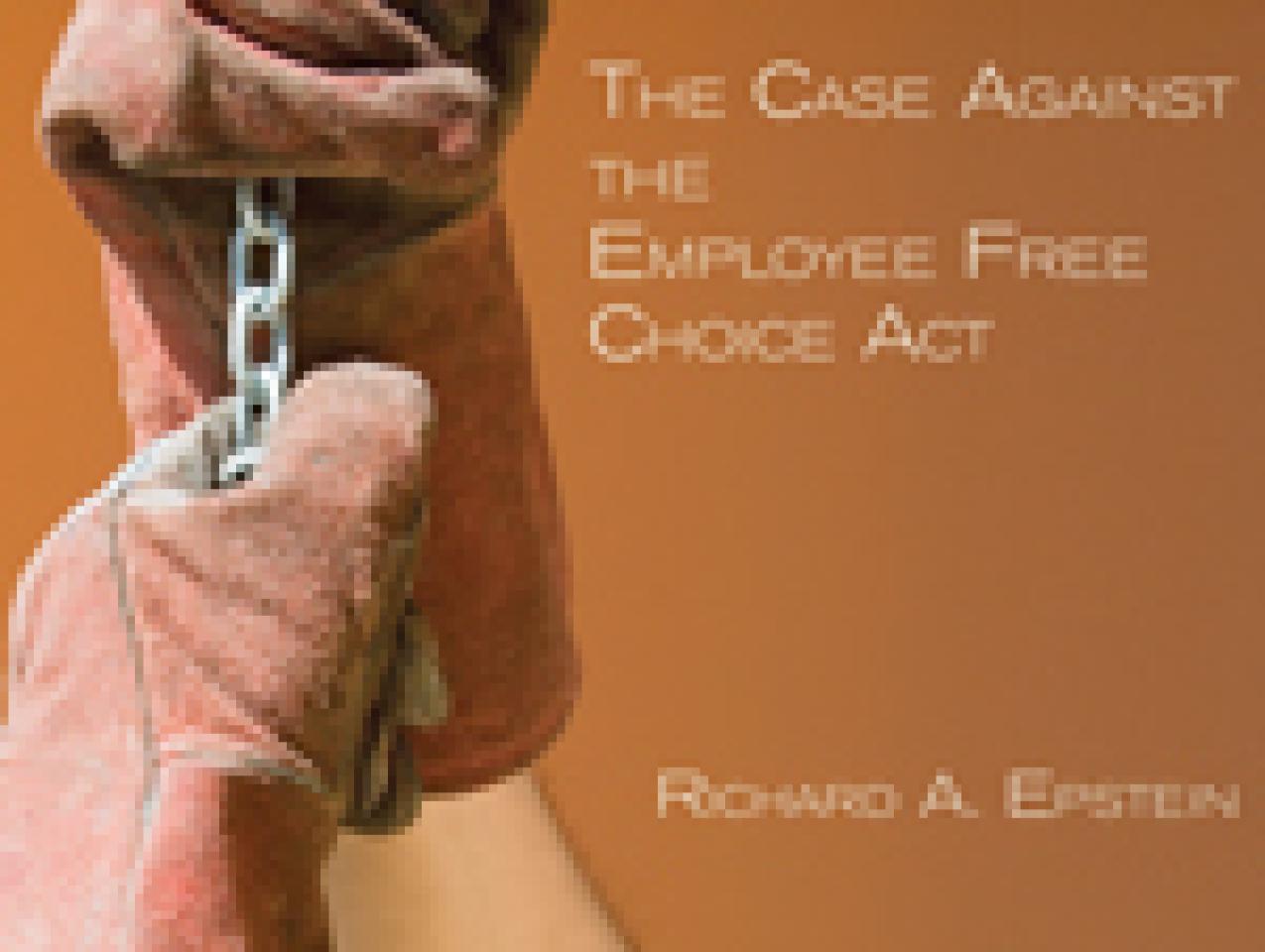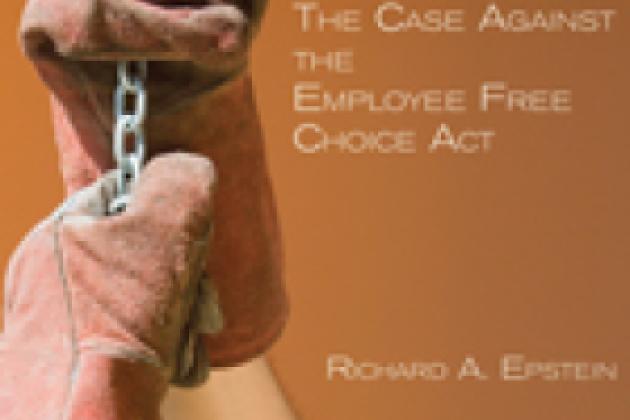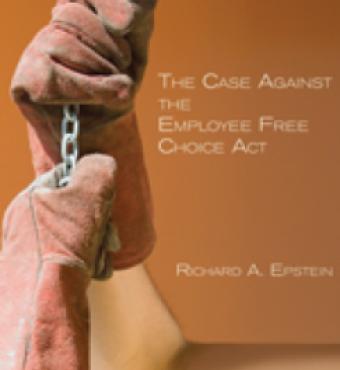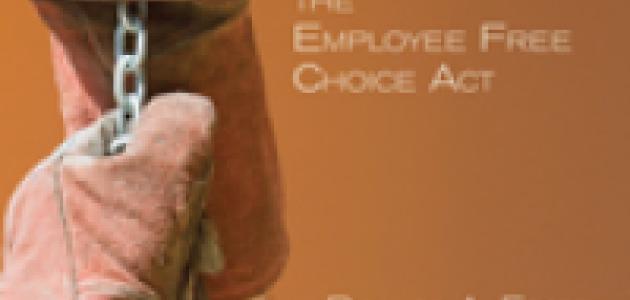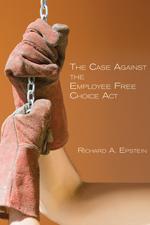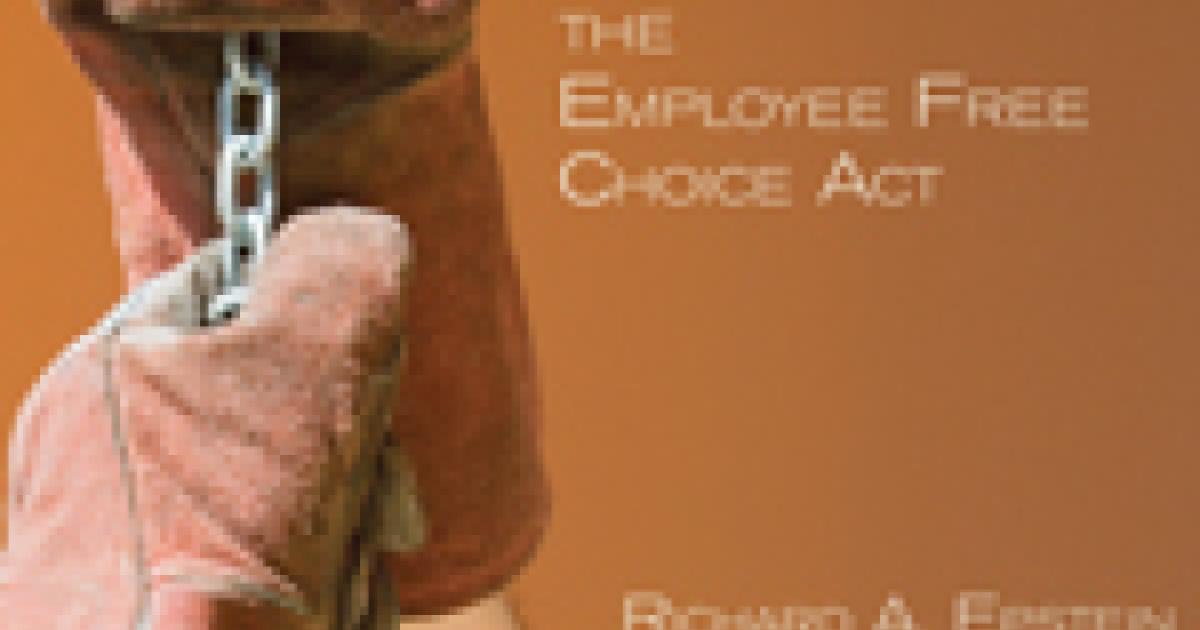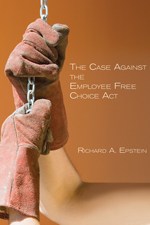
Viewed as one of the most controversial pieces of labor legislation in the last 60 years, the Employee Free Choice Act has “some of the worst possible consequences for the workplace—and through it for the overall economy,” says Hoover fellow Richard A. Epstein.
This legislation was first introduced in 2007 and reintroduced in 2009. The opposition to its card-check provisions has led the Democrats to pull back on those controversial provisions and to press forward with its compulsory arbitration provision. But as Epstein now says, “These short term changes in tactics do nothing to conceal the long-term risk that the card-check legislation will be reintroduced at some later time.” Epstein, in his book The Case against the Employee Free Choice Act (Hoover Press, 2009), examines all the critical proposals contained in the original version of EFCA and explains why they constitute a large step backward in labor relations that will work to the systematic detriment of employees, employers, and the public at large.
“The brevity of the statute conceals many serious difficulties about its integration with existing labor laws, even as it gives evidence to the massive shift of power from private ordering to state control,” said Epstein. The source of the controversy lies in three major objectives of the champions of labor reform:
- An increase in the penalties for unfair labor practices (ULPs) by employers during union organization campaigns
- The use of a card-check system to authorize a union for a particular bargaining unit
- A system of mandatory interest arbitration that allows a panel of federal arbitrators to set the terms of a first two-year contract in a 130-day time frame. At the option of a union, a card-check system could, in effect, bypass the protections of the secret ballot by allowing a card check to certify a union. The union would thereafter deny any employer or employee the option to refuse to deal on the terms demanded by the union, which could leave bankruptcy as the only defense against improvident state arbitration decrees.
Epstein, the James Parker Hall Distinguished Service Professor of Law at the University of Chicago, is the Peter and Kirstin Bedford Senior Fellow at the Hoover Institution. He is also a visiting professor at NYU Law School. He has written extensively on constitutional law, law and economics, and labor law.
The Case against the Employee Free Choice Act
By Richard A. Epstein
| ISBN13: 978-0-8179-4942-6 | $15.00 |
| 196 pages | July 2009 |







